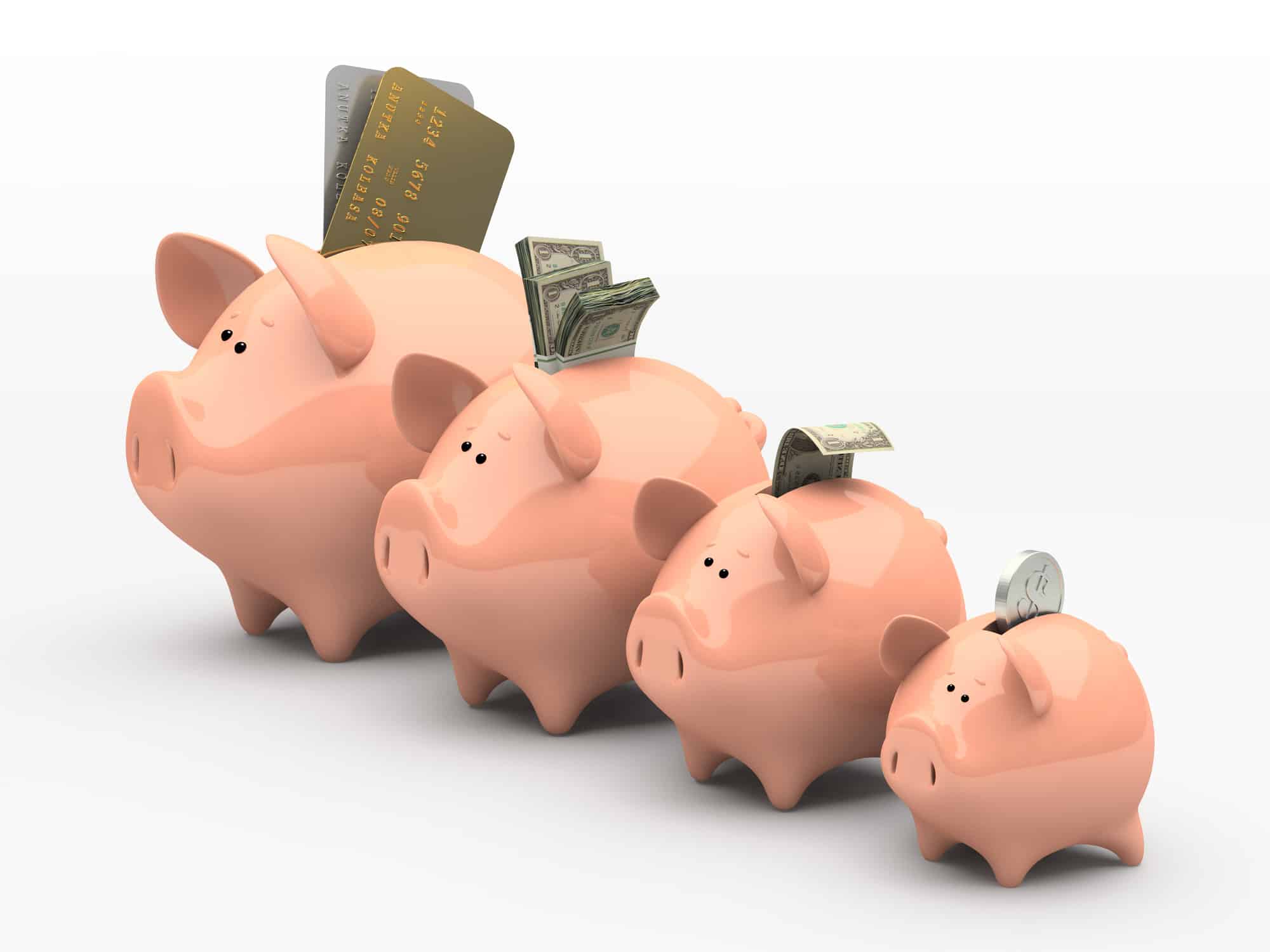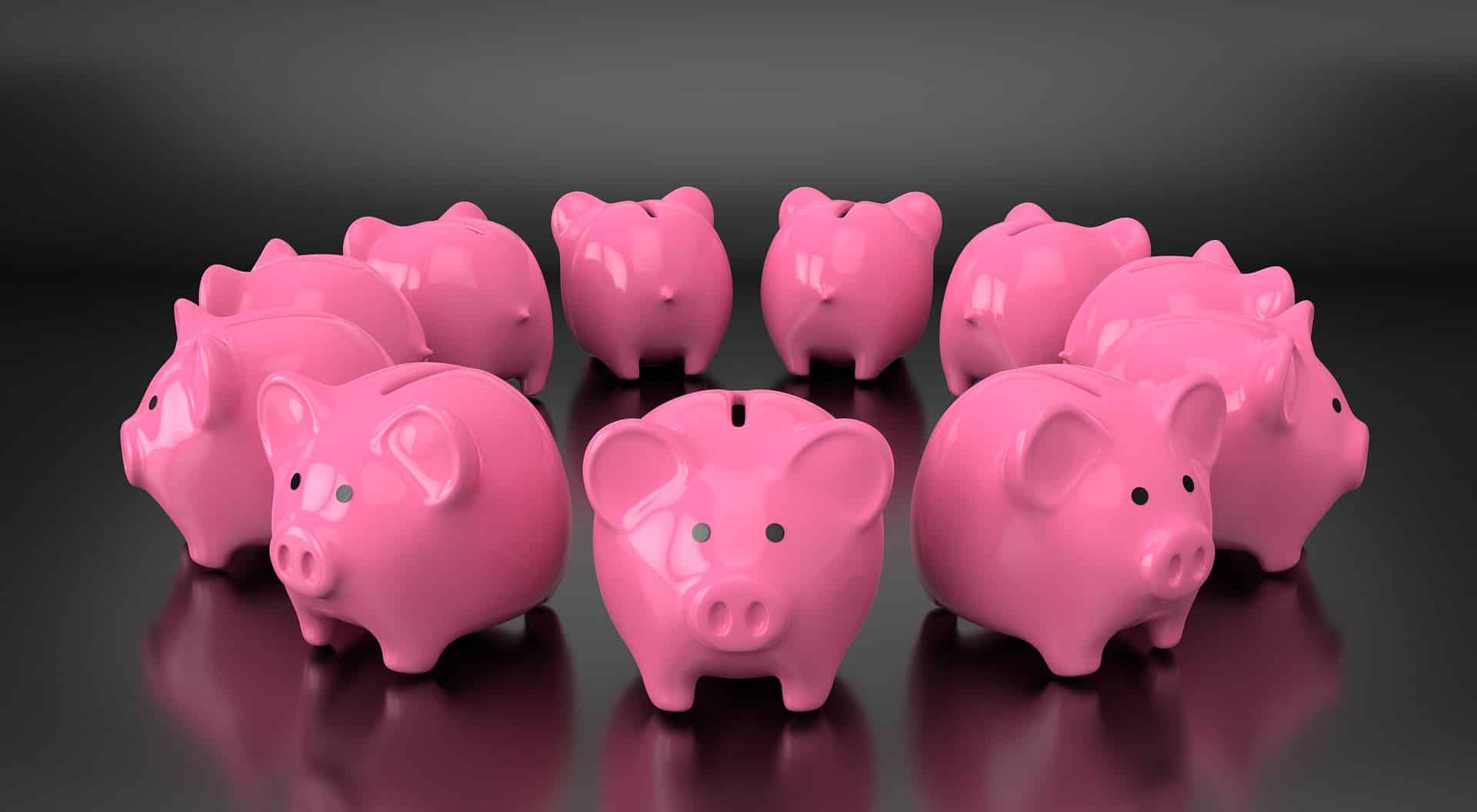Even though a lecture on saving money can be a boring topic for many people, it is life-skill worth learning. By saving today, you will be protected tomorrow from unforeseen emergencies and financial burdens. Whether you are saving for your retirement, your children’s studies, or your own marriage, choosing the right saving method is important.
Since there are a lot of options available to choose from, choosing one can easily become stressful. This blog post lists some of the ways in which you can save your money and compares them so that you can make a decision easily.
1. Savings account
A savings account is the most common method of investment. It is risk-free since the savings account is insured by the government in most countries. Since the risk involved is low, the interest rate is also lower than most other investments.
Banks use the money in your savings account to lend loans to other people. So, the bank profits from the money you deposit in your savings account.
A savings account can help you to reduce your spending. In many countries, the number of times you can withdraw money from your savings account free of cost is limited.
A savings account is intended as a method of long-term investment. It helps you save money for planned and unplanned events in the future.
Nowadays, you can open a savings account with online banks as well. Online banks offer better interest rates when compared to traditional banks.

What should you look for in a savings account?
Depending on your needs, prioritize the following factors before finding a bank to open a savings account.
i. Interest rates
Obviously, you want to save money. So, it goes without saying that you need to find a bank that offers higher interest rates.
ii. Monthly fees
Depending on the country you live in, most banks might charge you a monthly fee for opening a savings account. Some banks might waive these fees if you have a minimum balance. Try to find a bank that suits your needs and read their terms of service before you sign up.
iii. Ease of withdrawal
Does the bank have an extensive network of ATMs? It is crucial if you want to tackle an unexpected emergency in the middle of the night.
iv. Automatic transfers
Does the bank let you transfer money from your checking account to your savings account automatically? That way, you will be saving money even in months when you have zero motivation to save.
v. Opening balance
This is not a deal-breaker. However, depending on your situation, you might need a bank that permits you to have an opening balance as small as possible.
vi. Insurance
In some countries, the savings account is insured by the government. Is it available in your country as well?
Scores
Ability to saveROIEase of AccessibilityRisk
MediumLowHighLow
Ability to save – MediumROI – LowEase of Accessibility- HighRisk – Low
2. Money Market Account
A money market account is not to be confused with a money market fund, which is a type of mutual fund. A money market account is a savings account that offers higher interest rates. Like savings accounts, it only permits a fixed number of free withdrawals per month. But, unlike a savings account, it comes with debit cards and the ability to write checks. But there’s a catch when it comes to money market accounts. They have higher minimum balance requirements. That’s why they offer better interest rates than a normal savings account.
What should you look for in a money market account?
i. Interest rates
This should obviously be the most important criteria in choosing a money market fund. Does it offer higher interest rates than traditional savings accounts? Does it offer higher interest rates than online savings accounts?
ii. Minimum balance
Is the minimum balance required to open an account too high for you? If not, you can invest in a money market account if it offers higher interest rates.
iii. Fees
Do they have any monthly fees? If yes, how high is it? Do you have to pay any penalties if your balance is less than the minimum balance required? If so, then how much is it?
iv. Insurance
In some countries, money market accounts are insured by the government. Is it available in your country as well?
v. Ease of withdrawal
Debit cards and the ability to write checks can make withdrawal easy. But they can also increase spending. So, depending on whether you want the flexibility or better savings, you can decide between getting a debit card, and not getting one.
Scores
Ability to saveROIEase of AccessibilityRisk
Low (< Savings account)Medium (>= savings account)High (> savings account)Low (= savings account)
Ability to save – Low (< Savings account)ROI – Medium (>= savings account)Ease of Accessibility – High (> savings account)Risk – Low (= savings account)
3. Term (Fixed) deposit account
A Term deposit account is also known as a fixed deposit account in some countries. It offers a fixed interest rate for a designated time (called the maturity period). Regardless of how the market varies and how the bank changes its interest, a fixed interest rate is assured. Hence, if the market performs poorly and the bank reduces its interest rates, your interest rate doesn’t drop. On the other hand, if the market performs better, and the bank increases its interest rates, your interest rate doesn’t rise either. The interest rate offered here is usually higher than the interest rate offered for a savings account. However, withdrawing money from a Term deposit account before the maturity period leads to penalties. In addition to that, adding more money to the term deposit account is not possible. You have to open a new term deposit account instead.
Hence, a term deposit account doesn’t provide as much flexibility as a savings account. But it helps you to save your money more than a traditional savings account.
What should you look for in a term deposit account?
i. Interest rate
This is obviously the most crucial factor. Your goal is to find the bank with the highest interest rate.
ii. Maturity period
Does the bank offer different maturity periods for you to choose from? Depositing a huge sum for an extended period will give you higher returns. However, shorter periods are sensible if you don’t have a separate emergency fund. Hence, having different options can help you make a better choice.
iii. SMS maturity reminders
Most term deposit accounts renew automatically upon the expiry of the maturity period. The interest rate that the bank offers at the time of expiry will be automatically chosen for the next term.
An SMS reminder on the expiry of the maturity period can help prevent such an automatic renewal with lower interest rates. You can then decide if you want to close the account or negotiate a better interest rate for the next term.
iv. Withdrawal penalties
How much does the bank charge for early withdrawal. Not everyone can keep depositing money regularly for a long time. For those cases, choosing a bank that charges a minimal premature withdrawal penalty is a wise choice.
v. Interest payout frequency
How often do you want the interest to be paid to you? Monthly, yearly, or only at the expiry of the maturity period? Choose the bank according to that.
vi. Interest payment between banks
You may have your savings or checking account in one bank and a term deposit account in another bank. In that case, does the bank deposit the interest from the term deposit account in your savings account in another bank? Choose a bank that does offer such an option.
vii. Collateral for a loan
Most banks allow the option of taking a loan against a fixed deposit account. Instead of breaking a term deposit account, you can use this option in an emergency.
The loan offered is usually a percentage of the term deposit account. It has to be repaid before the maturity period expires. The interest rate is lower than that of a personal loan, but higher than the interest rate on the term deposit account. You can compare banks based on these details too.
Scores
Ability to saveROIEase of AccessibilityRisk
High (> savings account)High (>= Money market account)Low (< Money market account)Low
Ability to save – High (> savings account)ROI – High (>= Money market account)Ease of Accessibility – Low (< Money market account)Risk – Low
4. Recurring deposit account
A recurring deposit account is a type of term deposit account. In a recurring deposit account, you can deposit fixed sums of money every month. If you don’t have a huge amount of money already saved, you can opt for a recurring deposit account. It is a boon for everyone who cannot stop themselves from spending all the money they have. Just like a term deposit account, the interest rate is fixed. This ensures that you are not affected by market fluctuations. Also, you have to pay high penalties if you withdraw money before the maturity period expires.

What should you look for in a recurring deposit account?
All the factors that apply to a term deposit account affect the recurring deposit account as well. However, the maturity period plays an increased significance in a recurring deposit account.
i. Maturity period
This one is also important. In a term deposit account, you deposit a considerable amount early on and forget about it.
But, in a recurring deposit account, you deposit small sums of money at regular intervals until the maturity period expires. The period should be long enough to earn you a higher interest rate. At the same time, it shouldn’t be too long that you end up withdrawing money early.
ii. Collateral for a loan
Most banks allow the option of taking a loan against a recurring deposit account. Check the same details (as in a term deposit account), before choosing a bank.
Recurring deposit account vs. term deposit account
Consider the following cases:
- You invest a huge amount in a term deposit account.
- You invest the same amount split into smaller sums at regular intervals in a recurring deposit account.
They have the same interest rate. At the expiry of the maturity period, which of the two accounts will earn you a higher interest?
A term deposit account will earn you a higher interest because you invest the entire sum upfront. So, the interest rate applies to the entire sum for the entire period. However, this doesn’t hold true if the interest rate is compounded yearly, and both accounts mature in a year.
Scores
Ability to saveROIEase of AccessibilityRisk
High (> Term deposit account)High (< Term deposit account)Low (= Term deposit account)Low
Ability to save – High (> Term deposit account)ROI – High (< Term deposit account)Ease of Accessibility – Low (= Term deposit account)Risk – Low
5. Certificate of Deposit
A Certificate of Deposit (CD) is an excellent option for impulsive spenders to save money. It is an option offered by banks and credit unions. It offers customers fixed interest rates for depositing a considerable amount and leave it untouched for a specified time. There is a penalty for early withdrawal, but the interest rate offered is higher than a savings account. Since the interest rate is fixed, you are protected from market fluctuations until the maturity period expires. Hence, you won’t suffer any losses if the market suffers a downfall suddenly. But, in case the market performs better, you won’t be able to make any profits from it either. The early withdrawal penalty can help you save money. If you have a lump of money and are afraid of spending it, you can invest it in a CD. This ensures that your money is protected from your impulsive spending habit while earning a little interest.
Certificate of Deposit vs. Term deposit account
While a Term deposit account and a Certificate of Deposit may appear the same, there are some minor differences. A CD is generally used to save money for the short-term. A term deposit account, on the other hand, is used to save money for the long-run (10+ years). In some countries, you can take a loan against a Term deposit account. But, a CD doesn’t offer such an option. You can start a term deposit account with a minimal amount of money. A CD, in comparison, requires a huger deposit.
What should you enquire about, before opening a CD?
i. Duration
How long is the Certificate of Deposit for? This depends on your financial situation and the amount of money you wish to save. Longer durations typically offer higher interest rates because you can’t access your money for longer durations.
ii. Renewal
What happens when the duration expires? Does the CD get automatically renewed? If so, how will you be intimidated about it?
iii. Withdrawal penalty
How high is the penalty for early withdrawal of your money? Some banks might even offer a no-penalty CD.
iv. Insurance
Who is the issuer of the CD – A bank, a credit union, or a brokerage firm? Is your investment covered by insurance? One of the primary reasons why people invest in a CD is for the safety of their money. So, if your investment is not backed by insurance, what happens if the issuing agency goes bankrupt?
v. Interest payment
Will the interests be paid every month, every quarter, half-yearly, yearly, or only at the end of the maturity period? Are the interest payments taxable?
vi. Inflation
CDs are meant to park your money for shorter periods. If you invest in a CD for longer periods (> 5 years) and if the inflation increases during this period, the value of your money may depreciate. So, a CD with a longer maturity period is only worthwhile if the interest rate is more than the inflation rate.
Scores
Ability to saveROIEase of AccessibilityRisk
High (<= Term deposit account)High (>= Money market account)Low (<= Term deposit account)Low
Ability to save – High (<= Term deposit account)ROI – High (>= Money market account)Ease of Accessibility – Low (<= Term deposit account)Risk – Low

Leave a Reply